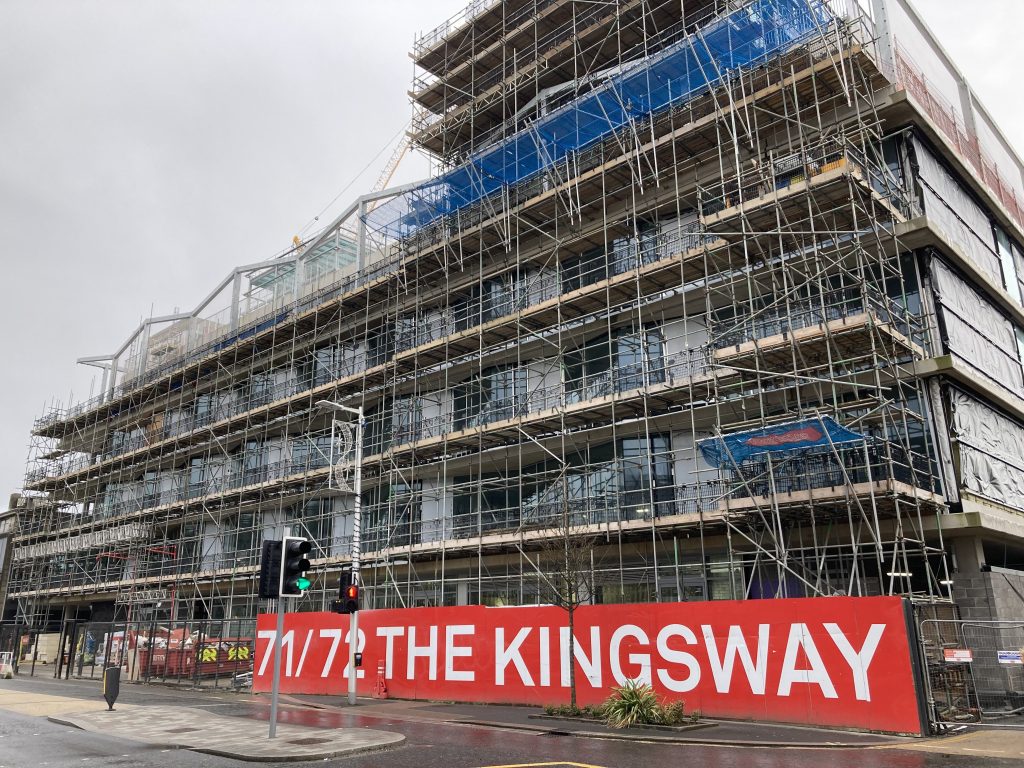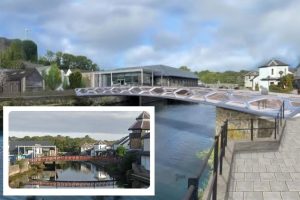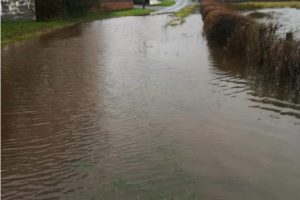SWANSEA Council could borrow up to £50 million in the coming three years – adding to what the opposition leader described as “extraordinary” levels of debt.
The council was £693.8 million in debt as of September last year, according to report by the UK Public Accounts Committee. Out of 22 local authorities in Wales, only Cardiff Council – with £858.2 million – had more debt, but Swansea was top when it came to debt-per-resident. Expressed this way, the debt was £2,917 per person.
There is no suggestion that Swansea Council is in financial trouble and the Labour administration has a clear focus on city centre regeneration, but there is a cost as well as a benefit to the work it’s carrying out.
The latest budget proposals include an assumption for up to £50 million of further borrowing in the next three financial years. The money would be for capital projects like the ongoing restoration of the Hafod Copperworks site, the upgrade of railway arches and tunnels on The Strand, and contributions towards new schools.
The budget will be set by full council in the coming weeks and, assuming the borrowing were to happen, it could take the debt level to £743.8 million. This would, however, be well below a threshold called a “debt ceiling” which finance chiefs and councillors approve annually. The debt ceiling currently is £882.8 million.
Liberal Democrat opposition leader, Cllr Chris Holley, said he was concerned about the level of debt and questioned how many full-time jobs the projects being overseen by the council, which has borrowed £260 million at low interest rates since 2016, were creating.
“The amount we are borrowing is extraordinary,” said Cllr Holley. “The last time we borrowed such a lot of money was in the 1920s when the old town council bought land in the town centre, and it was only paid off in around 2002-03.
“The leader says we are borrowing at exceptionally low rates. That may well be, but there has never been this level of debt. We need to service it and that takes money out of the revenue budget.”
Cllr Holley said not all the money that had been borrowed had been spent because it was “taking so long” to complete the projects, and that some of it was being lent out to third parties to generate an income, which he felt was not its purpose.
He added: “I quite understand borrowing money for schools, but we are not creating enough jobs with our projects. We don’t know yet how we are going to fill the new offices at 71/72 The Kingsway and the Palace Theatre.”

All councils borrow money, and when the former Lib-Dem-led administration – led by Cllr Holley – was voted out of office in the 2012, Swansea had a £357.2 million debt, according to council accounts published that year.
Debt levels actually fell for around three years after the new Labour administration came to power, and Cllr Stewart said “expensive” historic debt – that’s debt taken out when interest rates used to be high – has been paid off.
“It means borrowing costs are now millions of pounds a year less than they otherwise would have been,” said the council in a statement.
“It also demonstrates how borrowing money when it has been cheap is now paying dividends, not just through how we’ve invested that money in vital projects residents can see around them every day, but also doing that at the lowest-possible cost.
“The impact of borrowing for major capital projects for the people of Swansea, for jobs and the economy can be seen every day at new schools like Ysgol Tan y Lan, Clase, hundreds of new affordable homes for rent, as well as major city centre investments like the Swansea Arena, and the new Castle Square Gardens starting this year. Borrowing to spend on these vital projects ensures we are doing all we can so Swansea is well-placed to benefit when the UK economy picks up.”
It added: “Thanks to the way the capital programme takes advantage of other sources of funding such as the Swansea Bay City Deal, and match-funding from Welsh and UK Governments, the programme has paid for the biggest school-building and improvement programme in Swansea in modern times.”
Cllr Stewart said the council’s level of reserves were the second highest in Wales and that its ability to access money when it was required, known as liquidity, was the strongest. He added that city centre projects would create new streams of revenue for the authority, and that income earned from borrowed but unspent money helped offset future repayments.
Cllr Holley maintained that there needed to be more evidence of full-time employment being created, especially with the impact of mass job losses likely 10 miles down the road at the Port Talbot steelworks. “We desperately need jobs,” he said.
Cllr Stewart said the Palace Theatre was fully let ahead of its opening and that 71-72 Kingsway, which he said was expected to open in six months, was around 50% let. “Interest in both sites has been very strong,” he said.



















